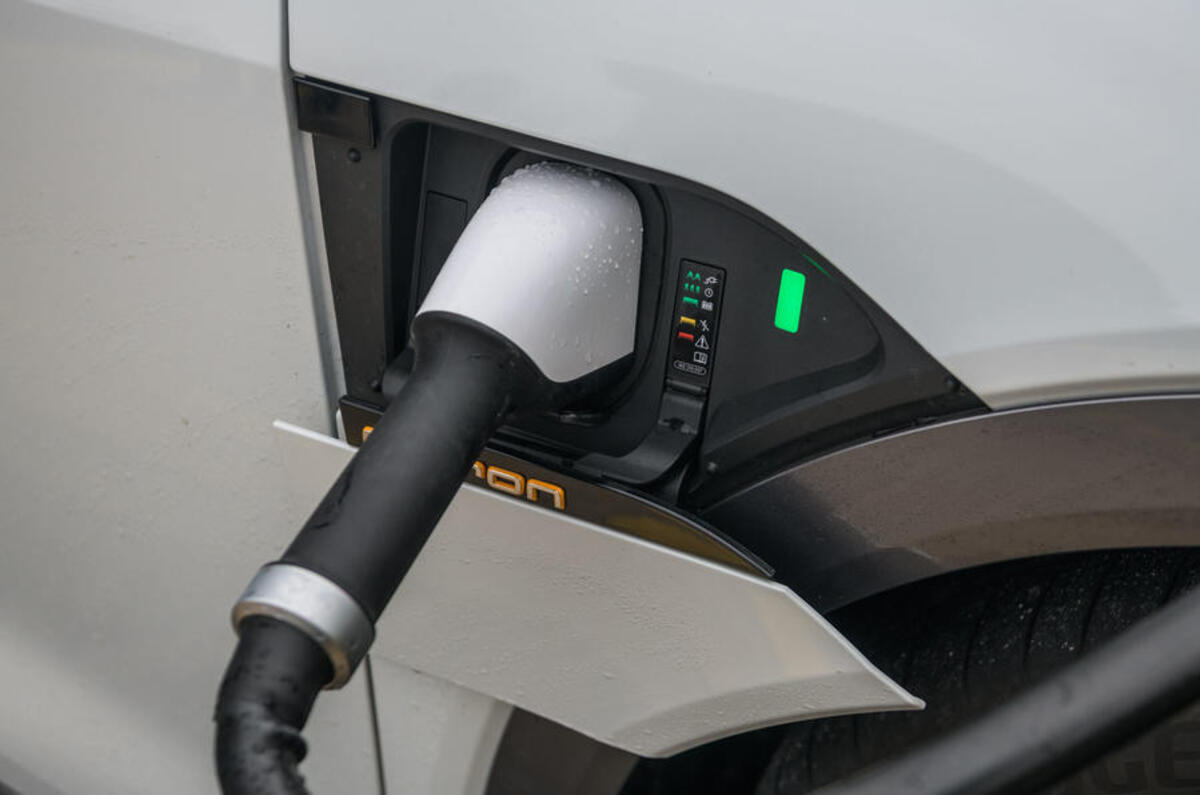The government minister in charge of future transport planning has targeted doubling the number of electric vehicle rapid chargers available in the UK within the next four years as a key way of promoting the take-up of electric vehicles.
The Government has set the goal of phasing out the sales of pure petrol and diesel-engined cars by 2040 and is currently looking at whether that target can be brought forward. George Freeman MP, Department for Transport minister of state, believes that goal can only be met through both investment in infrastructure and efforts to change the public mindset on electric vehicles.
Speaking about how to meet those targets at the launch of the Electric Vehicle Energy Taskforce report on the transition to electric cars, Freeman noted that there were more than 24,000 charging points in the UK and claimed the country was ahead of other European countries in installing fast chargers – but he said he wanted to see that number expand.
“By 2024, I’d like to more than double the number of rapid charge points to over 5000," he said. "That would give even more people across the country the chance to drive electric vehicles – and we need to think about a balance between following where the uptake [of electric cars] is and reassuring tomorrow’s purchasers that we’re building for them.”
Freeman said transitioning to EVs was a key component in reaching the UK’s target of net zero emissions, and it has become more pressing “because of the pace of climate change, and the pace of popular public opinion” on environmental issues.
“It’s clear to me the public want us to grip this coherently. People are prepared to make sacrifices, but they need to know those sacrifices will count towards a bigger global goal.”
The EV Energy Taskforce report made a series of proposals to drive the take-up of electric cars, including allowing ‘roaming’ between charging point operators, a public information campaign to give advice on EVs and greater collaboration between the automotive and energy industries.
Freeman called the report “a real milestone to set out the challenges for the future”, and added: “For the transition to EVs to be a success, we’re going to have to move from the early adopters to the mass adopters, the people in my constituency who don’t really care.
“They just want to get from A to B, and if we can save them some money and help them contribute to a cleaner and greener society, they’ll come with us – but most of all they’ve got to get from A to B. That focus on what people actually want, rather than what we think they want, is really important.”
Freeman said his role was to take an integrated approach to improving the whole transport network, including both public and private transport – something he said was a major challenge.
“It’s taken us about 70 years to build our current motorway network, and culturally for 100 years we’ve been focusing public opinion on, and building a planning system and government revenues around, the idea of a personal vehicle economy.
“We’ve spent 100 years telling people that the highest human achievement is to drive on the road with an internal combustion engine. Reversing that message at pace, and with conviction, in a way that really drives change isn’t easy.”
READ MORE
Major EV report calls for charging firms to allow 'roaming'
Opinion: why allowing EV drivers to 'roam' could drive take-up








Join the debate
Add your comment
Good sign
The distribution of rapid stations in the UK isn't too bad right now (aside from central/western Wales, but that's a bit of a blackspot for petrol stations too). The key is to increase the number of charging points per station, so you can always depend on getting a charge. The reason Tesla's Supercharger network is so much better than the public one isn't because of its distribution - there are a lot less Superchargers than CCS - but because of its dependability. If you only have one or two points per station, there's a high chance of the location being a write-off due to a combustion-engined car blocking the space, a broken charger, or just having two other people arrived to charge first.
The government can fix the dependability without spending a penny, just mandate a minimum number of charging units per rapid station. Say, 2 generally, 4 in high-density areas or if there's no other station within 10 miles, and 8 at motorway service areas and trunk roads.